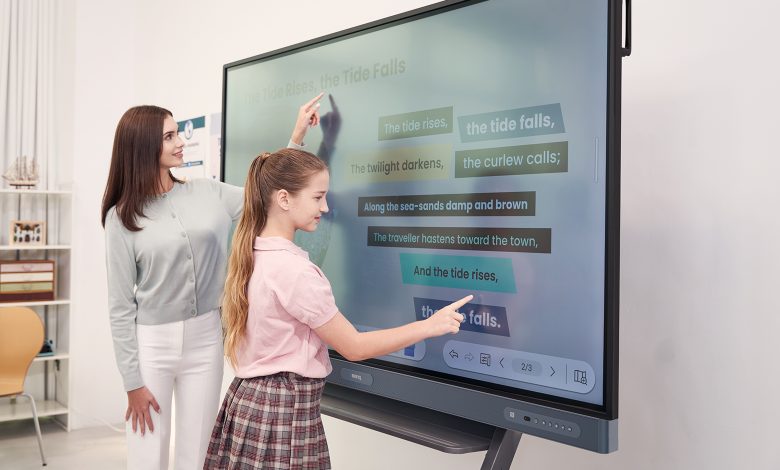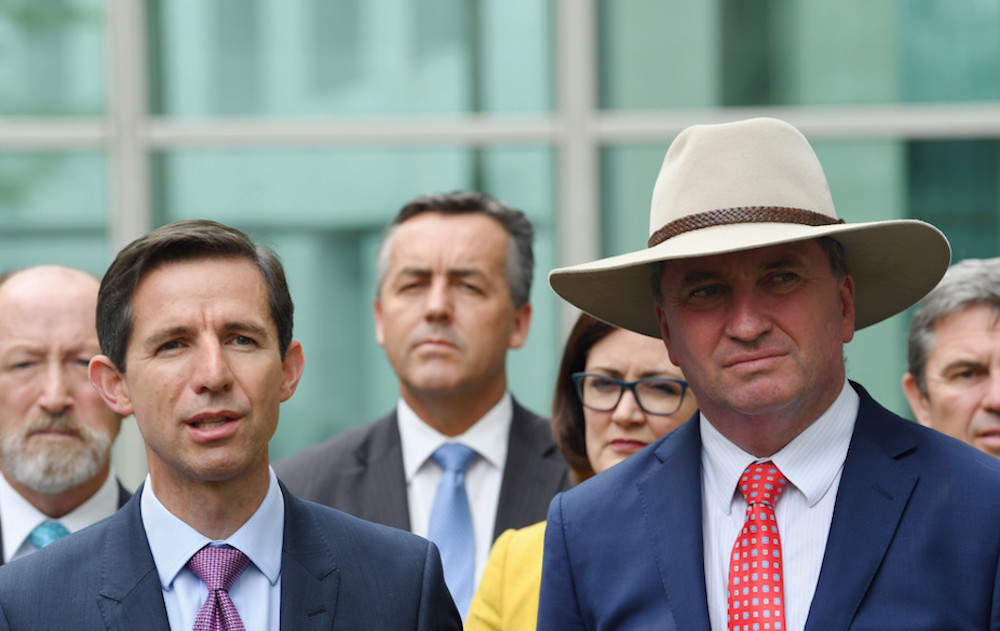BenQ’s world leading smart boards with GMS integration
We explore the functionality and learning advantages of the next generation of interactive smart boards for classrooms.

BenQ, is a global leader in Display Solutions for Education, and we have announced our next generation of interactive displays, the BenQ Board: Pro RP04 series and the BenQ Board Master RM04 series.
These boards are already the first to ship in ANZ to offer full support for Google Mobile Services (GMS) and are officially certified by Google Enterprise Devices Licensing Agreement (EDLA). But what exactly is Google EDLA and GMS?
Read the latest print edition of School News HERE
What is Google EDLA?
EDLA stands for Enterprise Devices Licensing Agreement, a new program introduced by Google at the end of 2022. It’s designed to help solutions providers offer devices with built-in GMS.
Now then, what is GMS?
What is GMS?
GMS, or Google Mobile Services, is a comprehensive suite of all of Google’s most popular apps and APIs bundled together and tailored for Android devices, enhancing functionality and user experience. Some apps include Google Search, Google Drive, Chrome, YouTube, and the Google Play Store, among other apps.
Advantages of having GMS on a Smart Board
The integration with GMS in smart boards offers many benefits, all of which revolutionise the education experience. The three most important one consist of:
Official access to the Google Play Store
The presence of the official Google Play Store allows users to download and install apps onto their board. Having Google Play—with its extensive library of educational games and productivity tools—available on a large interactive screen opens up many possibilities in terms of teaching and work.
Seamless Integration with Google Tools
Previously, accessing Google for Education tools on large-format displays such as smart boards posed challenges. Now, with GMS integration, users can effortlessly install and access these tools (ex. Google Docs, Sheets, and Slides) locally, streamlining workflows and enhancing productivity.
Better Device Security
With BenQ Boards, schools can depend on Google’s built-in security features, like Play Protect, to protect them from malicious apps, phishing attacks, possible data leaks, and data loss. It also safeguards you from downloading potentially harmful apps to your devices and removes previously installed apps that exhibit malicious behaviour, providing peace of mind to educators.
What Makes the New BenQ Boards Different?
The BenQ Board Pro RP04 series and BenQ Board Master RM04 series are covered by the Google EDLA and are the first-ever smart boards from BenQ to offer built-in Google Mobile Services. The new boards seamlessly integrate the latest BenQ hardware and software along with all the advantages of an EDLA-certified device.
Aside from access to Google Play and other Google collaboration tools, BenQ Board users can expect the following features:
A familiar and intuitive UI
The user interface of GMS-integrated BenQ Boards has the look and feel of a large tablet. Customise your teaching style by easily moving apps around and changing your screens depending on your teaching style or workflow.

Powerful education and collaboration tools
All BenQ Boards come with EZWrite, a feature-rich whiteboarding software designed for engaging classes and discussions. It also has InstaShare, a wireless screen sharing solution that gives users more flexible ways to share, present and collaborate.
Hassle-free centralised management
IT administrators managing existing Google account lists can take advantage of the BenQ Identity and Access Management (IAM) system to synchronise their Google Workspace Directory and immediately carry over all user accounts into the BenQ ecosystem.
Management
Admins can also streamline management with BenQ’s AMS and DMS 3.0.
Schools that already have existing Google accounts can easily transition to using BenQ Boards without any extra setup. The BenQ Account Management System (AMS) allows IT and administrators to sync their Google Workspace Directory and instantly move user accounts into the BenQ ecosystem.
The BenQ Device Management Solution (DMS) also allows IT admins to control BenQ Board settings remotely and effectively. With DMS, they can monitor device analytics, manage apps, push device updates, and configure the power settings of both individual and groups of BenQ Boards.
Single Sign On (SSO)
This is the key difference that resonates with teachers and users: BenQ is the only education solution provider that integrates single sign-on and sign-off with all its interactive displays and services. Single sign-on integration provides teachers with the convenience of using a single set of credentials to log into all BenQ interactive displays and services, as well as other applications deployed by the school.
Log into your device with your school account to access cloud storage, device and account management, and communication systems without having to log in again. Teachers can scan a QR code with their smartphone for quicker login or use one-tap login with their school-issued NFC cards. Once finished teaching, simply tap again with your NFC card to log out – of all open applications.
ClassroomCare®
BenQ Boards are the only Interactive Displays for Education with a set of health-focused ClassroomCare® features aimed at prioritising positive learning outcomes without compromising on healthy learning environments.
Both the BenQ Board Pro and Master are the world’s first interactive displays equipped with Eyesafe® Certified 2.0 screens, helping to protect students’ and teachers’ eyes from high-energy blue light, which has been shown to cause eye strain and long-term vision-related issues. The Eyesafe® screens can do this while still maintaining optimal colour performance. The Radiance Protection Factor (RPF) scale is a crucial metric for assessing the level of blue light emissions and their potential impact on eye health. Currently, the BenQ Board Pro RP04 boasts an impressive RPF50 rating, whereas the BenQ Board Master RM04 achieves a rating of RPF35. In this scale, higher RPF numbers signify a more significant reduction in high-energy blue light emitted by a display, translating to better eye protection.
BenQ Board also features the Air Quality Sensors that monitor the levels of CO2, PM2.5, and other toxic pollutants in the classroom. This innovative feature not only has the effect of keeping students more alert, but also improves their cognitive ability, and safeguards their respiratory health. The RP04’s built-in Air Ioniser helps reduce particulate matter in classrooms, and enhances the overall air quality. It works by releasing negative ions, which helps purify the air by decreasing the amount of inhalable suspended particles. There are 2 ways to look at how an Air Quality Sensor and Air Ioniser can be used in the classroom.
The first for Teachers. Air Quality Sensors provide real time data on key environmental parameters by detecting temperature, humidity, dust and monitoring high CO2 levels that can cause student drowsiness. These sensors alert teachers and remind them to take necessary action, whether that be by switching on the air conditioning or simply opening a window.
Secondly, management can get involved. They will be able to check long term data for boards installed in classrooms. Through device management software on BenQ Interactive Displays, IT Staff can also remotely turn on the Air Ioniser, cleaning the air before students and teachers enter the classroom. Policies can be enforced by School Managers to make the purification of classrooms a morning routine, should the air quality metrics be consistently poor from the records they can see.
In addition, BenQ also stands as the World’s First in the industry to offer certified Antimicrobial Screens and peripherals, reducing the risk of germ transmission. They have a proprietary non-toxic antimicrobial coating, recognized by TÜV Rheinland, that is 99.9 percent effective against common bacteria and other disease-causing germs, making their solutions safe to touch.
Integrate AV is an approved supplier on contract for NSW Department of Education Multimedia Solutions State Contract, QLD Department of Education Standing Offer Arrangement QEDSOA-71789 and the Tasmanian Information and Communication Hardware C150 contract.






